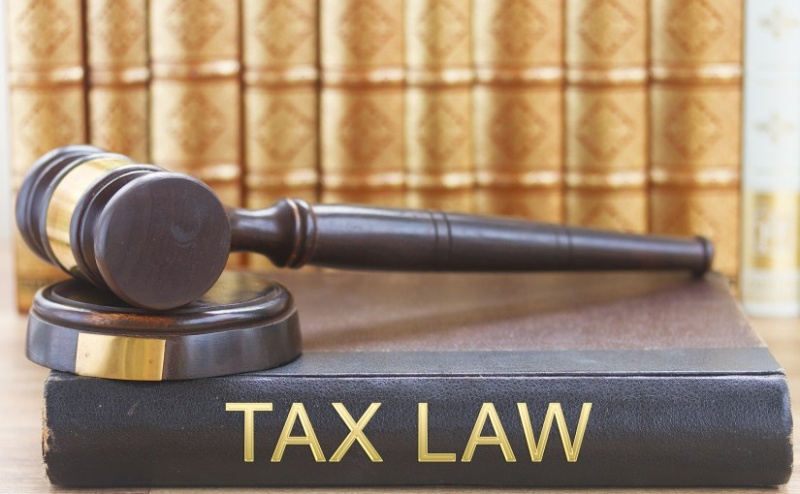
What Is a Prepaid Card?
A prepaid card is a type of debit card, similar to a reloadable gift card or stored-value card. You can load it with a cash balance and use it anywhere a particular card network—Mastercard, Visa, Discover, or American Express—is accepted. Here is why you might consider one.
Key Takeaways
- Prepaid cards are a form of debit card you use to spend money you’ve already loaded onto the card.
- Though prepaid cards are catching on among “unbanked” consumers, some individuals use them in tandem with a checking account to limit their discretionary spending.
- Issuers may charge setup, reloading, and purchase fees—in addition to a fixed monthly fee. It’s a good idea to understand exactly what those charges are before buying a card.
How Prepaid Cards Work
You can buy prepaid debit cards at supermarkets, convenience stores, and many other outlets, as well as directly from the companies that issue them. Because there’s no credit involved—you can only spend the money you put on the card—there’s no credit check required to get one. Though a poor credit history doesn’t hinder your chances of obtaining a prepaid card, having one also doesn’t help you improve your credit score. (Nor does a regular debit card, because debit card spending isn’t reported to the credit bureaus.)
You load cash onto your card, either at an ATM or a participating store or through direct deposit. Prepaid cards have account and routing numbers, which can make it possible to arrange for direct deposit of your paycheck or government benefits.
After that, you use your card much the same as you would a regular debit or credit card. You can make in-store and online purchases, pay bills, or withdraw cash from an ATM. Many of the companies that offer these cards have apps you can use to keep track of your balance, review your transactions, and transfer funds.
When your balance is depleted, or at any other time you wish, you can reload the card with additional money.
Unlike a regular debit card, you don’t need a bank account to have a prepaid debit card. For that reason, these cards are widely used by unbanked adults who either can’t get or don’t want a traditional bank account but sometimes need an alternative to paying with cash. With cash-free transactions becoming more ubiquitous, it is difficult to avoid carrying some kind of card today.
Advantages of Prepaid Cards
Though there are many ways in which prepaid cards work like a typical debit or credit card, they offer certain advantages over those and other forms of payment. Among them:
Prevent Overspending
Prepaid cards can be a good way to stay out of debt because you can’t spend more than the amount you've already deposited. They're also a useful budgeting tool. Even if you have a checking account, you could put a fixed amount on a prepaid card each month for certain spending categories, such as dining out. When your allowance for the month dwindles, that's it until next month.
Avoid Overdraft Fees
Banks have no problem slapping customers with steep penalties when they overdraw a checking account. In 2021, the average overdraft fee nationwide exceeded $33 per transaction, according to the research firm Moebs Services. Some banks will let you turn off overdraft protection (in which case, your debit card will simply be refused if you don't have enough money to cover a transaction), but it may be easier still to get one of the many prepaid cards that never charge these fees at all.
Limit Losses
You can’t lose more than the balance on your prepaid card, even if you become the victim of fraudsters. If you use a debit card instead, its liability protection likely has you covered, but some consumers prefer using a prepaid card when making an online or in-store transaction, rather than putting their full checking account at risk.
Cards marketed as prepaid are covered by the Electronic Fund Transfer Act. That means card issuers have to investigate and reimburse you for unauthorized charges or errors as long as you file a timely report. You may also be eligible for certain additional protections offered by the card’s network. However, in order to get those benefits, you have to register the card with the issuer.
In addition, most cards are insured by the Federal Deposit Insurance Corporation (FDIC), protecting balances of up to $250,000 from a bank failure (again, you need to register your card to obtain coverage). Issuers must provide a warning if they don’t offer FDIC insurance.
Overcome a Poor Banking History
If you left your last bank with unpaid fees, that could come back to haunt you when you try to open a checking account at another institution. Banks order a bank history report before letting you open an account, which will show any previous accounts that have been “closed for cause.” Prepaid cards require no such checks, so they’re a way to get a debit card, even if other avenues are closed to you.
Teach Kids How to Manage Money
Prepaid cards are a convenient tool for teaching kids about managing money and navigating an increasingly cash-free economy. Some prepaid cards specialize in this market, making it easy for parents to put a child's allowance or other money on the card.
Reap Some Rewards
Some issuers of prepaid cards even have rewards programs, much like credit cards do. The American Express Serve Cash Back card, for example, offers unlimited 1% cash back on all purchases. The Walmart MoneyCard offers 3% cash back at Walmart.com and in the Walmart app, 2% cash back at Walmart fuel stations, and 1% cash back at Walmart stores, up to $75 per year.
Pros and Cons
Pros
-
Prevents overspending
-
Avoids overdraft fees
-
Limits liability in case of fraud
-
Money education for kids
Cons
-
Does not build credit history
-
High fees
Disadvantages of Prepaid Cards
Though they can be useful in the right circumstances, prepaid cards also come with a couple of downsides.
No Credit Reporting
As mentioned above, prepaid cards, like other debit cards, do not report your transaction information to credit bureaus, so they are of no value if you’re trying to build a credit history or improve your credit score. In that case, you may be better off applying for a secured credit card. That’s a special type of credit card for people with a limited credit history or a poor one. A good secured card will report your bill payments to all three major credit bureaus.
Fees—and Lots of Them
Depending on the card you choose, you may face an activation fee, monthly fees, transaction fees, and reloading fees. Some even assess inactivity fees if you don’t use your card for an extended period of time. Needless to say, fees can add up quickly and drain your card's balance.
Take the Green Dot 2% Cash Back Visa Debit Card. Though its 2% cash back reward may be appealing, the card has a slew of fees, including fees for making in-store purchases, up to $5.95 for reloading your balance at a register, and 50 cents for checking your balance at an out-of-network ATM—on top of its $9.95 monthly service fee. Replacement cards carry a $5 fee with unexpedited delivery, and getting cash from a teller will cost $3.
The Consumer Financial Protection Bureau implemented new rules in 2019 to make it easier to compare the fees on prepaid cards. Now, issuers have to provide a chart showing the card's fees on the outside of the card packaging, as well as more detailed information on the inside. They also must post fee information online on the company website.
The Bottom Line
If you’re looking to control your spending and stay out of credit card debt or are unable to get any other kind of card, a prepaid card might be the answer. There are myriad options on the market, so look for ones that are easy to use and reload without paying a fortune in fees.
Article Sources Investopedia requires writers to use primary sources to support their work. These include white papers, government data, original reporting, and interviews with industry experts. We also reference original research from other reputable publishers where appropriate. You can learn more about the standards we follow in producing accurate, unbiased content in our editorial policy.
-
Moebs Services. "Good and Bad OD Fees."
-
Federal Deposit Insurance Corporation (FDIC). "Laws and Regulations: Electronic Fund Transfer Act."
-
Federal Deposit Insurance Corporation. "FDIC Consumer News: Is the Money on My Prepaid Card FDIC-Insured?"
-
American Express Serve. "Serve® American Express® Prepaid Debit Account."
-
Walmart MoneyCard. "Earn Cash Back Rewards by Shopping at Walmart."
-
Green Dot. “Cash Back Visa Debit Card.”
-
Consumer Financial Protection Bureau (CFBP). "Preparing the Short Form Disclosure for Prepaid Accounts."
Open a New Bank Account Advertiser Disclosure × The offers that appear in this table are from partnerships from which Investopedia receives compensation. This compensation may impact how and where listings appear. Investopedia does not include all offers available in the marketplace. Part of the Series Prepaid Debit Cards Prepaid Card Basics
- Guide to Prepaid Debit Cards
- Are Prepaid Cards Right for You? CURRENT ARTICLE
- Paying Bills with Prepaid Cards
- Prepaid Cards Processor
- Prepaid Cards vs. Gift Cards
- The 5 Best Prepaid Debit Cards
- Pros and Cons of Prepaid Tax Refund Debit Cards
Netspend
- How Do Netspend Cards Work?
- Deactivating or Canceling a Netspend Card
- Can Netspend Cards Be Used Internationally?
Open a New Bank Account Advertiser Disclosure × The offers that appear in this table are from partnerships from which Investopedia receives compensation. This compensation may impact how and where listings appear. Investopedia does not include all offers available in the marketplace.




